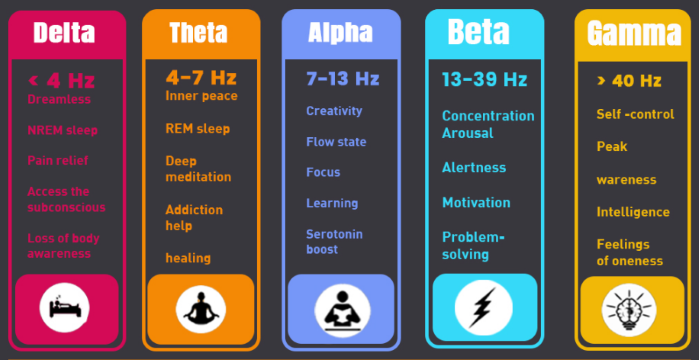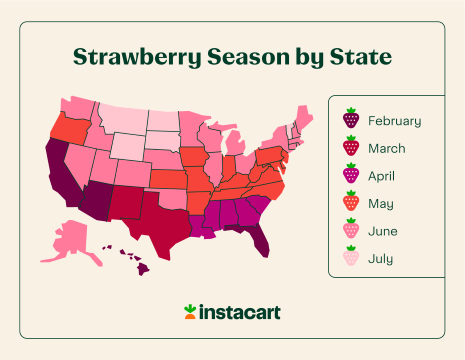Issue #369: Does Music Make You Stronger?
Good morning. It’s Friday, July 19th. Happy 50th to Max’s parents!
In today’s email:
Learn: The Power of Music
Try: Listen to What You Love
Eat: Strawberries
In the News: Living Longer (at least mice)
Stat of the Day
Number of hours the average person listens to music in a week. (source)
Learn
The Power of Music
I walked into the gym after a rough night of sleep, still figuring out how I dragged myself to the early morning class. I wasn’t sure how I was going to get through this workout (8 stations of 4 minutes each with a 1 min break in between - for reference 1 station might be 3 sets of 8 pull-ups and 8 deadlifts, another might be 4 sets of 10 box jumps and 70 lb stone ball pick-ups).
But as I bent down to tie my shoes, Eminem’s “Lose Yourself” started blasting through the speakers. Without realizing it in the moment, I was suddenly jolted with a shot of energy and started jogging in place to warm up. Before I knew it - I was finishing up those box jumps.
So what happened? What is the real power of music that has such a powerful effect on us?
Evolution of Music
Let’s quickly take a step back - what is music and when did it come about?
Compared to random noise - music brings together sounds in a meaningful way - it includes the fundamental elements of pitch (tone of sounds), rhythm (arrangement of sounds), tempo (speed of sounds), contour (shape of sounds), timbre (uniqueness of sound - e.g., guitar vs. piano), loudness, and reverberation.
Beyond that - music is in the eye of the beholder.
As for when it started - there were bone flutes as early as 40,000 years ago, but some historians suggest music might have been around even before that.
Today, it’s a part of every culture around the world - known as “human universal.” So if it’s so ubiquitous - then maybe there’s an evolutionary need for music.*
This is controversial - some experts claim music is simply for pleasure, but scientists argue music might be what allowed humans to develop such sophisticated speech by honing our vocal and motor skills.
We still use this today as music is actually a tool that helps stroke patients recover their ability to speak.
Maybe its biggest effect is the boost it gives our brain - maybe even increasing IQ. Music taps into every area of our brain:
Our amygdala picks up on the emotion we feel from the music
Our cerebellum tracks the beat
Our auditory cortices translate the sounds we hear
Our hippocampus evokes our memory (do we know this song?)
Our cortex then processes it
* For more check out Issue #17 “Get to Know Your Brain”
Music is also one of the few things that engages both sides of our brain simultaneously - the melody is picked up on the right side of our brain and the words by the left.
Music is so powerful that our brain actually starts to track along with the corresponding sounds. According to Stanford Medical, it can change our brain functioning more than any medication. For example, listening to music with 60 beats per min creates more alpha brain waves (8-14 hertz or cycles per second). These alpha waves are present when we are relaxed.
The right music also affects our hormones - it can lower cortisol and increase serotonin levels. Such an easy hack to adjust our stress response and get into a more positive mood.
Beyond how we feel - studies show that music also makes us smarter. Listening to music at 70 decibels (dB) - but no louder - increases our creativity, and kids exposed to music show higher verbal IQ test results.
Going back to my workout - when we listen to “pump up music” that we really like - our brain stimulates our adrenal glands to release adrenaline. This increases our energy and focus so our productivity levels increase dramatically - fight or flight is a good thing in small doses.
Research also shows that music during workouts yields higher levels of endurance, power and strength. We are distracted from the pain and therefore it delays our fatigue and increases our work capacity.
If you want to get real technical - recall how our brain starts to align it’s rhythm with the music. Well there are specific beats per minute (bpm) for a given exercise that will optimize your performance.
For example, 125-140 bpm is great for cycling and 123-131 bpm for running (depending on your specific pace). Here’s jog.fm with bpm by song.
What Music is Best?
Beyond the conventional wisdom to put on Mozart when studying and Metallica when lifting - the real key to get the biggest benefit from music is listening to what you like.
Music evokes emotion. Some of these emotions are shared - like feeling when we all hear the wedding song as the bride comes down the aisle. Others are from personal memories.
Music has a profound effect on what we feel - so the more we listen to music that promotes positivity, the more it boosts our brain, our feelings, and gets us pumped up.
Our music preference actually starts before we’re born - we like what mom likes. Even as we get our own opinions, familiarity is what makes us feel safe and comforted.
So indulge in music you love - spend time getting lost in it and allow it to be a big part of your day in a way that makes you smarter, stronger, and feeling great.
* Side note on evolution - even 150 years ago Charles Darwin suggested that music played a role in evolution. Being able to perform music was a sign of sexual fitness - you’ve got to be fit in order to sing and dance. This was even before seeing the mobs following around the likes of The Beatles, Elvis and countless other popular musicians.
For more on this - check out the book “Your Brain on Music”
Try
Listen to What You Love
There are times when silence is golden.
But bring more music that you like - really like - into your day (don’t worry, no one’s judging).
Pump it up at the gym or during a run, listen to something good while you work, and find what relaxes you to get those alpha waves flowing.
Thrive25 Partner Spotlight
Max has been thriving as a member at TMAC Fitness for almost a year, loving every moment of the engaging workout videos. Each session is approachable and includes a meditation - and there’s the perfect balance of bodyweight HIIT, cardio flush, strength training and yoga.
Join the 15-Day Free Yoga for Athletes Challenge!
Are you ready to elevate your fitness game? TMAC is kicking off a 15-day Free Yoga for Athletes challenge! Whether you're a seasoned athlete or just starting out, this challenge is designed to improve your flexibility, strength, and balance.
Take the first step towards a fitter, more balanced you! Join the FREE 15-day Yoga for Athletes challenge by clicking HERE!
Eat
Strawberries
Strawberries are amazing. They’re delicious and packed full of awesome nutrients.
Vitamins: vitamin C, vitamin A, and folate
Minerals: potassium, manganese, and magnesium
Antioxidants: anthocyanins, ellagic acid, and fisetin
Fiber: good source of dietary fiber
So that means…
Helps us not get sick (immune support from vitamin C)
Protects our Heart (antioxidants and fiber)
Gets Rid of Inflammation (polyphenols like quercetin)
Maybe stave off cancer (ellagic acid have been linked to a reduced risk of certain cancers)
Better Skin (again Vitamin C and other antioxidants help maintain healthy skin by promoting collagen production and protecting against UV damage)
Live Longer (fisetin kills off senescent cells - a sign of aging)
How to eat
Serving Size: 1 cup - roughly a handful
Pairing: eat strawberries with foods rich in healthy fats (avocado, nuts and seeds, olive oil) to enhance absorption of vitamins and antioxidants
Diets: strawberries are naturally vegan and gluten-free, and can be enjoyed in moderation for a keto diet
Watch Out For…: pesticides (go organic and wash thoroughly), allergies (avoid if you itch after eating) and digestive issues (rare cases, but they are high in fiber)
Best Time to Eat: anytime throughout the day
Best Time of Year: thanks to modern supply chains, you can get strawberries year-round. But the best time is when they’re in season in your state
In the News
Addition by Subtraction: Removing the IL-11 cytokine in mice (we have it too) increased their lifespan by nearly 25% (that’s a lot). (Nature)
ChatGPT for Biology: AI created proteins that apparently would have taken 500 million years to develop. (Live Science)
No Phones in School: NYC Schools is looking to ban phones for all students and many states and school districts are thinking about it too. (NPR)
Thanks for joining us today!
Check out the latest videos on our YouTube channel
Got feedback, recommendations or stories to share? Tell us what’s on your mind here
Want this direct to your inbox? Sign up here
Why Thrive25
We’re 40-something dads that felt our bodies and minds start to slow down and we’re not ready for that. We found too much information on every subject. So we started Thrive25 to transform what we’ve learned into something useful for the rest of us to spend just 3-5 min a day to optimize our health & longevity.
This newsletter is for you and we truly value your feedback. Never hesitate to reach out to us at team@thrive25.com.
To health!
Sign up for free:
The information in this newsletter is for informational purposes only and may not be appropriate or applicable based on your individual circumstances. Thrive25, Inc. does not provide medical, professional, or licensed advice. Please connect with your healthcare professional for medical advice specific to your health needs.









